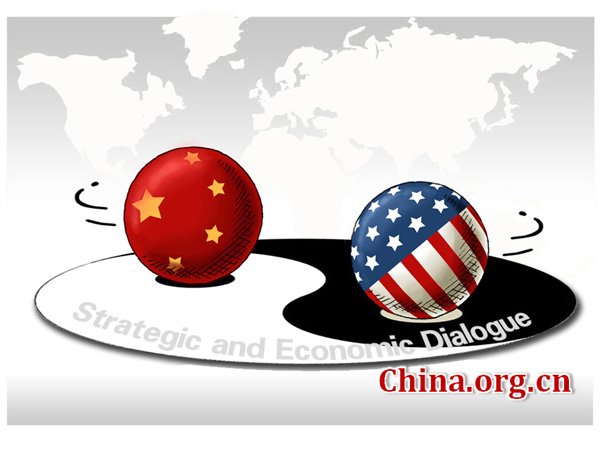Great powers and alliances in a multipolar world
- By Sumantra Maitra
 0 Comment(s)
0 Comment(s) Print
Print E-mail China.org.cn, April 16, 2016
E-mail China.org.cn, April 16, 2016
|
|
|
Coming together [By Zhai Haijun / China.org.cn] |
Over the week I attended a seminar on great powers and alliances, especially alliance systems and how and why allies are either needed or not needed and how a power can navigate the terrain of geopolitics. One of the issues was in regard to China and the U.S., and their alliances across the world. Given the rise of China, and the relative decline of U.S. power, alongside the recently claimed pivot to Asia and the heating up of the Asia pacific region, it seems prudent to revisit these questions. Readers may remember that I have sometimes touched upon these relevant topics, but I came across this fascinating article in National Interest, which was discussing a paper by the Chinese scholar Xu Jin in a Chinese Foreign Policy journal dated December 2015.
Xu takes up an interesting idea, stating that no power has risen alone in the world, since the 16th century. He mentions that the Chinese "rejection" of alliances is based on two principles, the Chinese standard policy of non-interference and reluctance to share burdens since 1949 and the Chinese reluctance to differentiate between states. Careful distinction here must be drawn to the fact that Chinese distinction is not treating states as equal, but is instead a refrain from discriminating any state based on their power or position in the global hierarchy. He concludes that the Chinese rejection of alliance structures might end, with the changing scenario of geopolitics, and having an alliance doesn't necessarily reflect a Cold war mindset, but rather is imperative in a multipolar world.
I have a few points to make. First of all, one needs to understand why alliances form and work. According to theories of International relations, we live in an anarchic world, which means, not that there is total chaos, but that there is a lack of hierarchy. States are responsible for their own security in this system, and therefore, states need to rely on maximizing their power or security. A state can do that in two ways, either by trying to achieve hegemony, and growing their military and economic power to a level where no peer state can challenge them. A state can still grow their military and strive for hegemony, but also look for alliances with likeminded, ideologically similar states. Now, an alliance is usually formed when a hegemony already exists and the other states feel threatened by that hegemon, or feel the need to balance the hegemon.







Go to Forum >>0 Comment(s)